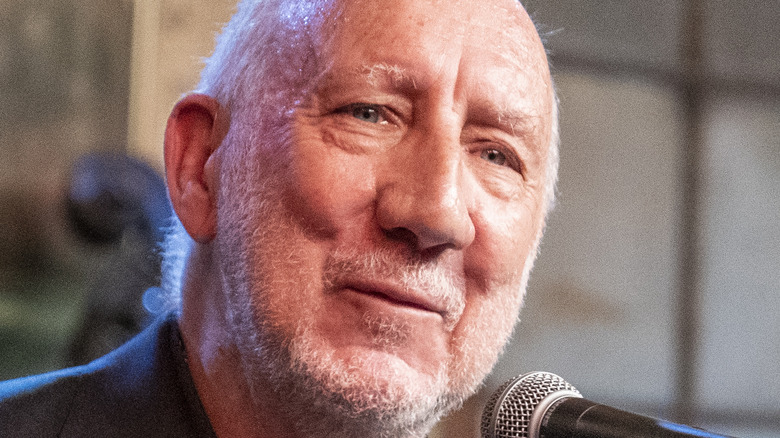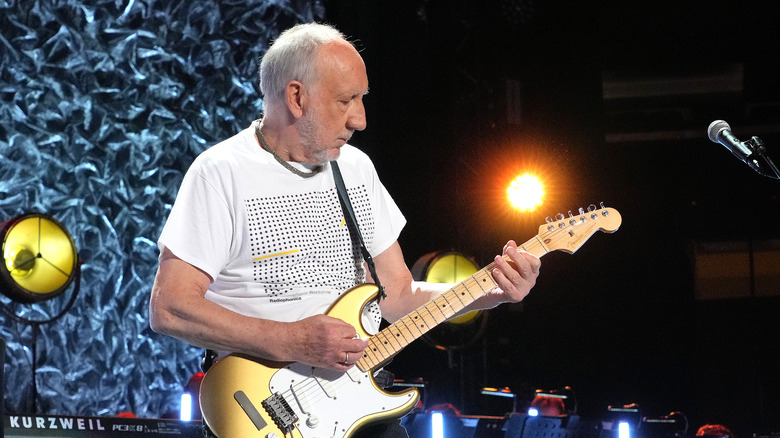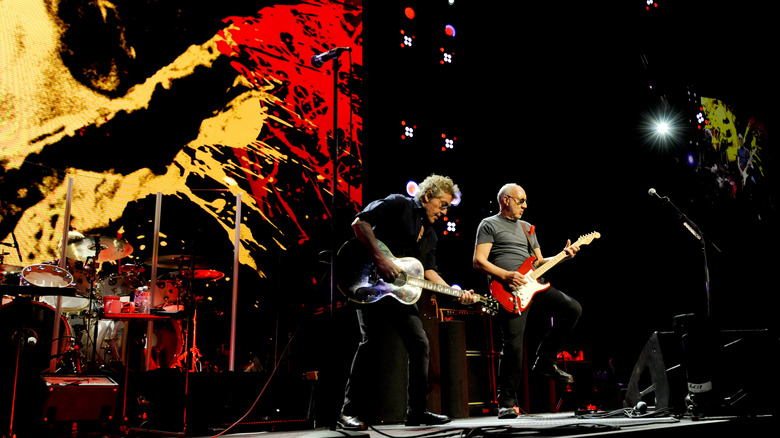The Real Story Behind The Who's Behind Blue Eyes
The Who were a major force in the British Invasion, the onslaught of historic rock bands from the U.K. that hooked the youth of the United States and Europe in the 1960s. More than The Beatles, The Rolling Stones, or others, The Who sang of and spoke to teenage frustrations and tribulations, such as peer pressure or the judgment of their seniors (via Britannica).
Pete Townshend, Roger Daltrey, John Entwistle, and Keith Moon burst onto the scene with songs like the angsty "My Generation" in 1965. It opened: "People try to put us d-down (talkin' 'bout my generation) / Just because we get around (talkin' 'bout my generation)." There was the delightful "Happy Jack" and "I'm a Boy" around the same time. By 1969, The Who were rocking Woodstock. The '70s then brought the biggest hits. "Baba O'Riley," "Won't Get Fooled Again," "Who Are You," and "Behind Blue Eyes" won The Who their place as one of the greatest rock bands of the century. In the midst of the success, "Behind Blue Eyes" expressed Townshend's frustrations over worldly pressures and temptations.
The faith of Pete Townshend
Pete Townshend was a devout follower of Meher Baba, an Indian spiritual leader. The song title "Baba O'Riley" references him. Meher Baba taught (nonverbally, as he refused to speak) that he was an incarnation of God like Krishna, Buddha, Jesus Christ, and Muhammad before him (via Britannica). All religions, he preached, revealed God, and all people needed to work to achieve true consciousness, the realization of their oneness with the higher power. Baba led a life of service when he wasn't teaching in India, Europe, the United States, and elsewhere, and warned that hedonistic behaviors like drug use could distract from the pursuit of true consciousness.
Another distraction was sex. According to Far Out Magazine, Townshend wrote the song after receiving advances from fans. After a Denver concert on June 9, 1970, he was greatly tempted by groupies but, staying true to Baba's teachings, went to his room alone. He sat down and wrote a prayer that began with "When my fist clenches, crack it open." In that moment, the seeds of "Behind Blue Eyes" were planted.
Secrets in the bridge
The wild bridge of the song explodes into being with "When my fist clenches, crack it open / Before I use it and lose my cool / When I smile, tell me some bad news / Before I laugh and act like a fool" (via Genius). It's as if Pete Townshend is begging for someone to restrain him from acting on his base desires. The next line is the clearest on this point: "And if I swallow anything evil / Put your finger down my throat." Temptation had to be rejected, purged.
"Behind Blue Eyes" was originally meant to be the theme song of a villain in Townshend's abandoned album-concert space opera "Lifehouse" (via Far Out Magazine). This explains other elements of the piece. The villain, like any well-crafted one, believed he was a good person and doing right. "But my dreams, they aren't as empty / As my conscience seems to be," the bad guy sings, suggesting that he is more than he's perceived to be, a man with hopes, dreams, and perhaps even a conscience that is more than it "seems." The work closes just as it opens, with the villain asking for sympathy: "No one knows what it's like / To be the bad man, to be the sad man / Behind blue eyes." In this way, the motives of the fictional character and Townshend's own briefly align, with both doing what they think is right, in a world that cannot see as they do.


